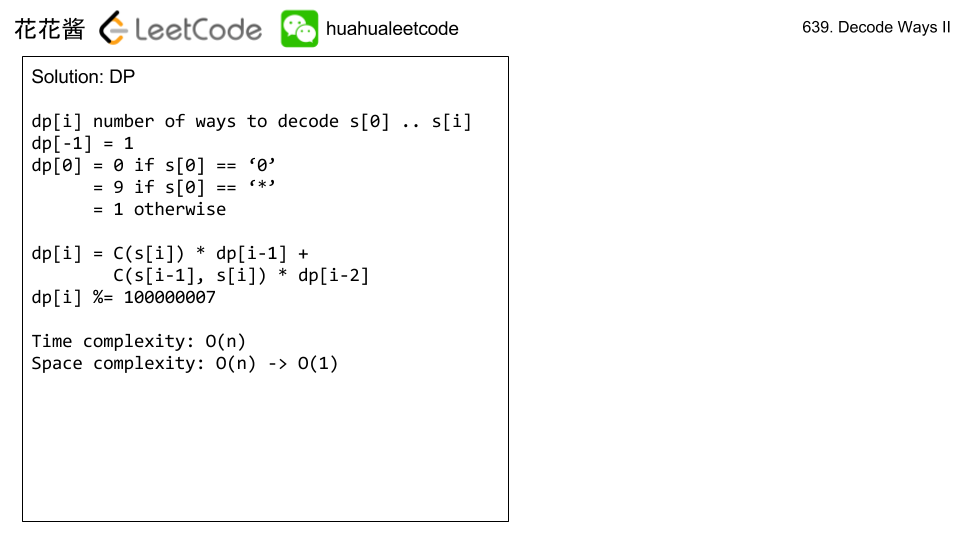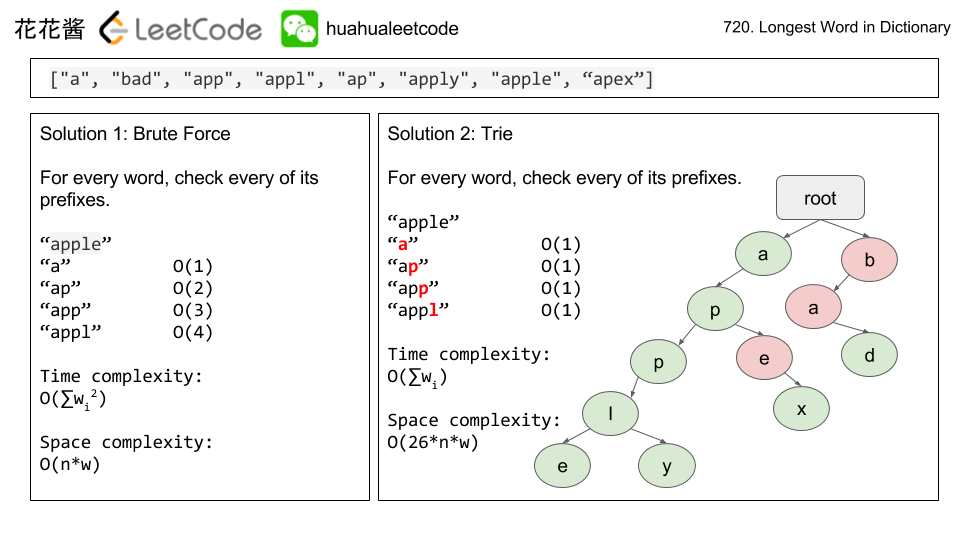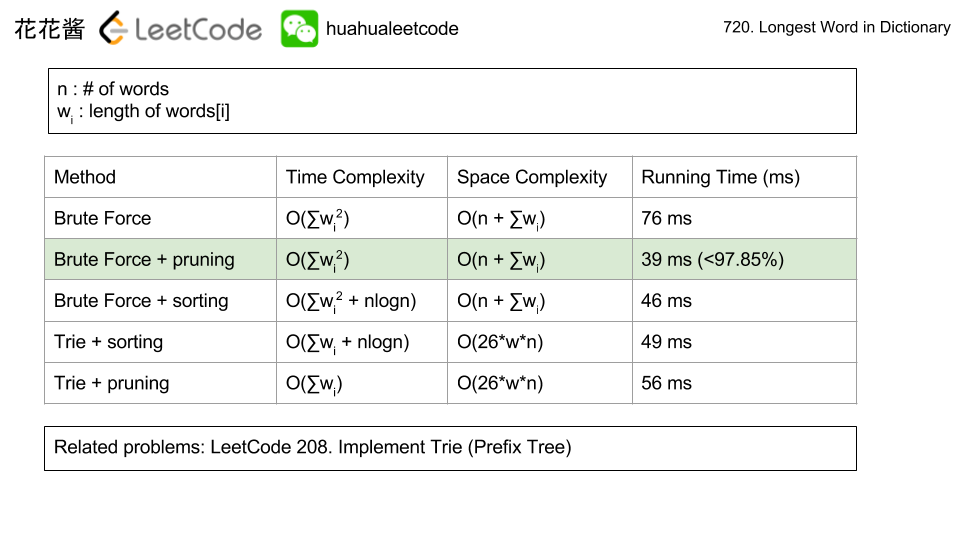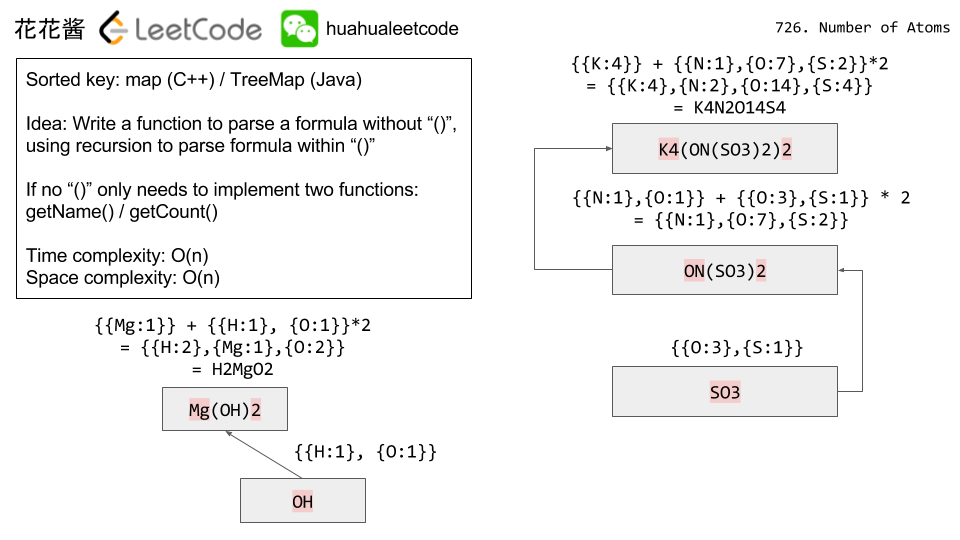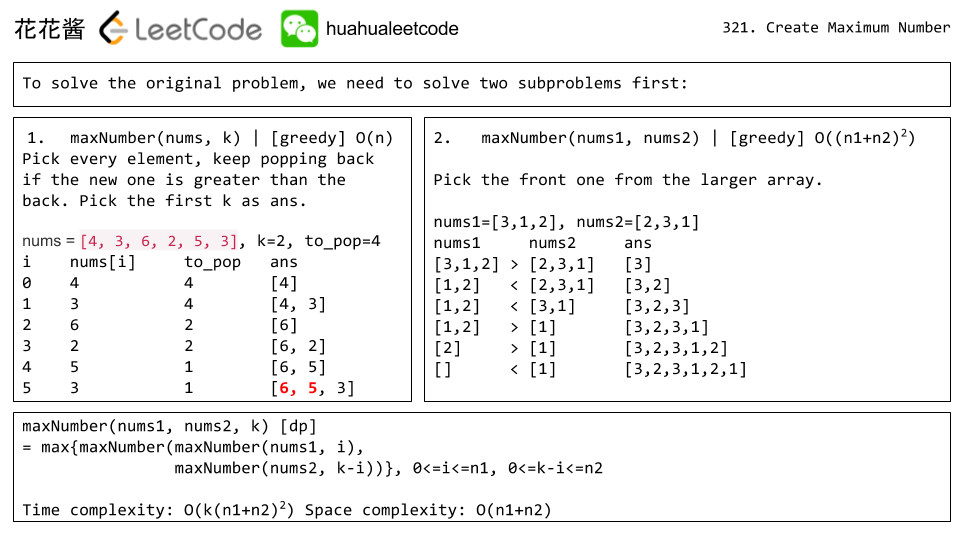Problem:
A self-dividing number is a number that is divisible by every digit it contains.
For example, 128 is a self-dividing number because 128 % 1 == 0, 128 % 2 == 0, and 128 % 8 == 0.
Also, a self-dividing number is not allowed to contain the digit zero.
Given a lower and upper number bound, output a list of every possible self dividing number, including the bounds if possible.
Example 1:
|
1 2 3 |
Input: left = 1, right = 22 Output: [1, 2, 3, 4, 5, 6, 7, 8, 9, 11, 12, 15, 22] |
Note:
- The boundaries of each input argument are
1 <= left <= right <= 10000.
Idea:
Brute Force
Time Complexity: O(n)
Space Complexity: O(1)
Solution:
C++
|
1 2 3 4 5 6 7 8 9 10 11 12 13 14 15 16 17 18 19 20 |
// Author: Huahua // Runtime: 3 ms class Solution { public: vector<int> selfDividingNumbers(int left, int right) { vector<int> ans; for (int n = left; n <= right; ++n) { int t = n; bool valid = true; while (t && valid) { const int r = t % 10; if (r == 0 || n % r) valid = false; t /= 10; } if (valid) ans.push_back(n); } return ans; } }; |
String
|
1 2 3 4 5 6 7 8 9 10 11 12 13 14 15 16 17 18 19 20 |
// Author: Huahua // Runtime: 6 ms class Solution { public: vector<int> selfDividingNumbers(int left, int right) { vector<int> ans; for (int n = left; n <= right; ++n) { const string t = std::to_string(n); bool valid = true; for (const char c : t) { if (c == '0' || n % (c - '0')) { valid = false; break; } } if (valid) ans.push_back(n); } return ans; } }; |
Related Problems:


